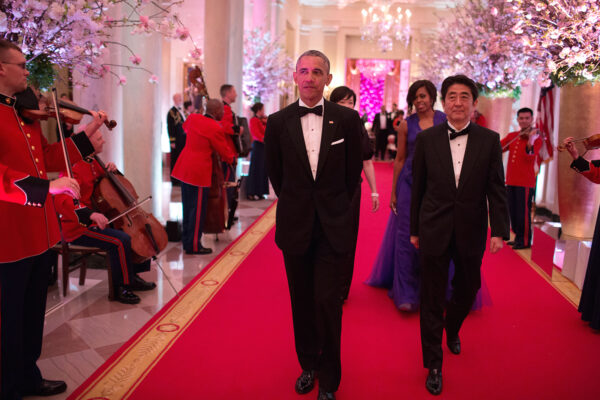
President Barack Obama has counseled Americans against disengagement from the world, arguing that the importance of such things as foreign aid, trade negotiations and electrifying the African continent must not be underestimated.
Obama, who is due to step down in January, told Charlie Rose in an interview on the eve of his trip to Europe and the Middle East that “the choice is not between us going around and invading everybody and being the world’s policeman or just pulling back.”
We will be doing ourselves a great disservice if we define our leadership too narrowly, as just military, or if we abdicate that leadership and discount the role that we play.
“We built this international order,” the president said. “It has to be nurtured.”
That may occasionally require military action, he added, but more often involves American leadership on combating climate change or an international health crisis and promoting trade.
Accomplishments
Obama similarly argued in his last State of the Union address earlier this year that America’s priority in foreign affairs must be upholding and, where needed, remaking “the international system we built after World War II.”
He touts the Trans Pacific Partnership and the Iran nuclear deal as key accomplishments of his presidency.
The first — a comprehensive trade pact that would encompass nearly all Pacific Rim nations — should help pressure China into accepting a market-based economic order. It is the economic pillar of Obama’s “pivot” to Asia.
The agreement with Iran should not only avoid the risk of a nuclear standoff in the Middle East; if it heralds a normalization of ties with the Shia nation, it could also see a more natural balance of power emerge in the region and allow America to wean itself off a one-sided dependence on oil-rich Sunni regimes.
Obama hinted at this in his interview with Rose, saying the nuclear deal with Iran could help modernizers in that country argue in favor of reengagement with the rest of the world while America should not confuse the interests of its allies in the Middle East for its own.
Skepticism
There is a chance that whoever succeeds Obama next year may overturn one or both achievements.
Many in Obama’s own party, including his former secretary of state, Hillary Clinton, who is the favorite to win the Democrats’ presidential nomination, are skeptical of the Pacific partnership, fearing that it will end up benefiting big businesses at the expense of the American worker.
Republicans, on the other hand, have denounced the agreement with Iran as tantamount to surrender to a state that has long sponsored terrorist activity against America and its allies, including Israel.
